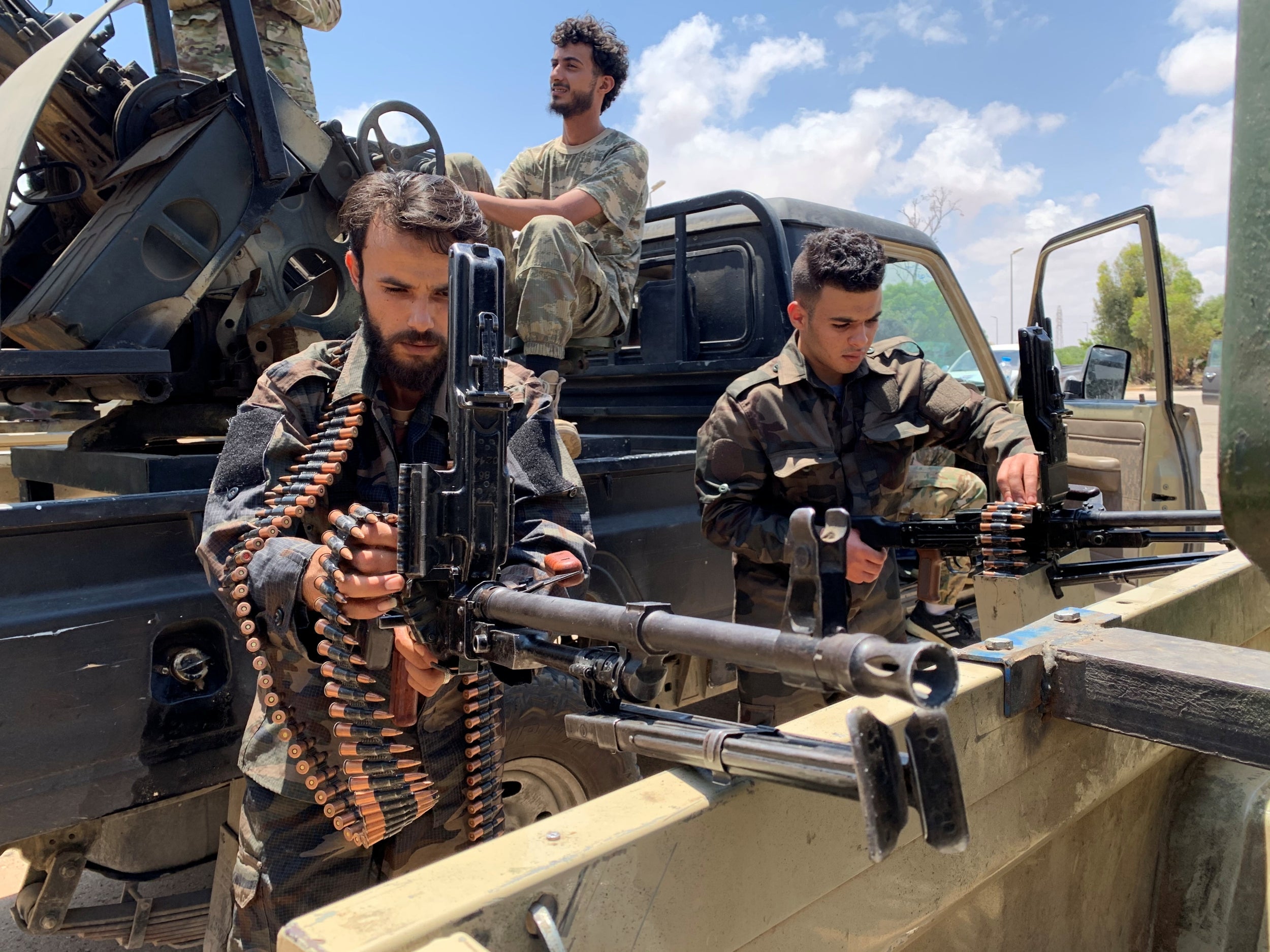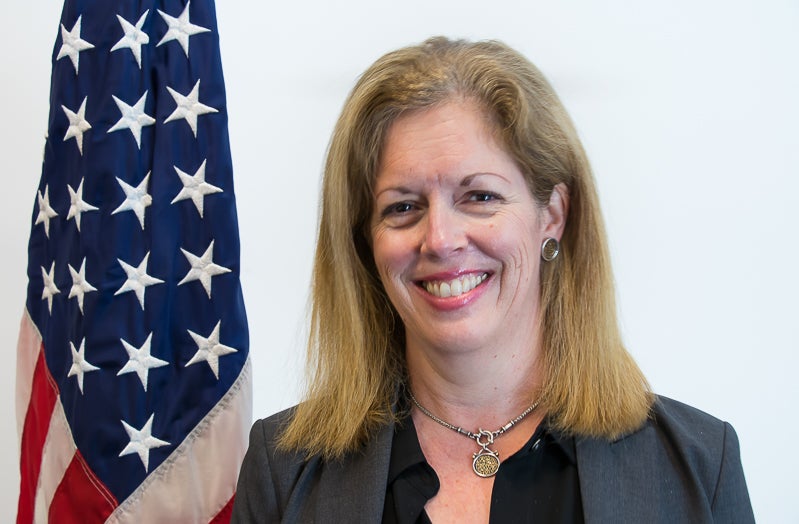UN envoy warns Libya must enforce ‘last chance’ ceasefire – or face ruin
Stephanie Williams cautions that foreign intervention in Libya risks sparking a devastating regional war, as Kim Sengupta reports


The people of Libya, “exhausted and scared” after years of brutal war, now face the danger of destruction of their country unless the “last chance” of a ceasefire is seized, a senior UN official has warned.
Stephanie Williams, the UN envoy to Libya, also cautioned that armed intervention by foreign powers is not only prolonging the violence in the country’s civil war, but may lead to confrontations and conflicts elsewhere.
“There is a real risk of this turning into a very dangerous regional war, what we are seeing is an overall picture of foreign intervention which is contributing to the continuation of armed conflict in Libya. There is a real risk of miscalculation which can trigger an even wider conflict,” she said.
Ms Williams spoke during a visit to London just before reports emerged claiming that Egyptian troops have been sent to an area around Idlib, the last major rebel stronghold in Syria with a sizeable presence of Turkish forces.
Turkey’s president, Recep Tayyip Erdogan, and the Egyptian leader General Abdel Fattah el-Sisi are backing opposing sides in Libya, respectively the government of Fayez al-Sarraj based in the capital, Tripoli, and the Field Marshal Khalifa Haftar. Around 150 Egyptian soldiers had arrived at Saraqib, south of Idlib, according to Turkey’s state run Anadolu Agency.
“Libyans are desperate for peace and an end to the violence, they are deeply worried about what has happened to their country. They are exhausted and scared. A ceasefire and talks towards an agreement and an inclusive political settlement are probably the last chance, the alternative is essentially the destruction of their country,” said the UN envoy.
But Ms Williams wanted to stress that the Libyans “fear this [peace] is not in their hands now. They are finding that decisions about their country are being made in the capitals of foreign countries. And there are huge risks of miscalculations. None of the parties involved can go for a zero-sum game, that is simply not possible”.
Libya has become an arena for competing foreign states sending mercenaries and weapons to the war. Haftar is actively backed by the UAE and Russia as well as Egypt. The UN recognises the Sarraj government that recently concluded a maritime treaty with Turkey. The European Union is officially neutral, but Italy backs the Tripoli government while France supports Haftar.
Ms Williams held that the international rivalry had subsumed Libya’s internal conflict. “There is a civil war and then there is a proxy war going on in Libya. It will be very difficult to end the first if the second is still going on. Nothing like enough has been done to stop the mercenaries and weapons coming into the country. We not only have mercenaries on the ground, and not just drones, but warplanes as well,” she stated.
The UK is the official penholder for Libya in the UN Security Council. David Cameron’s government, along with that of Nicolas Sarkozy’s in Paris, were instrumental in launching the Nato air campaign, which led to the overthrow of the Muammar Gaddafi regime. Both countries, however, have found themselves sidelined in what is unfolding there with other countries prepared to be engaged in combat.
The French president, Emmanuel Macron, has strongly criticised Turkey over Libya and had pressed for European Union sanctions on Ankara. However, there has been deep apprehension among other member states, that this could result in president Erdogan “turning on the tap” on refugees to Europe.
The European Union, instead, has issued a call for both sides in the conflict to agree to an immediate ceasefire.

Ms Williams maintained that “the UK’s role remains crucial to bring back stability to Libya. Obviously all calls for ceasefire, including the EU’s, are most welcome”.
The US, meanwhile, has been accused of a confused approach that has added fuel to the conflict and has also had the effect of entrenching Russia in Libya. Senior diplomatic sources say that phone calls made to Haftar by Donald Trump and his then national security advisor, John Bolton, encouraged the commander to launch an offensive to capture Tripoli.
The Kremlin, it has been claimed, knew that the attack would fail, putting them in a position to come to the Field Marshal’s aid, making him dependant, and ensuring that Russia is in a strong position to have a say in Libya’s future.
There are now believed to be more than 2,000 strong Russian soldiers working for the private security firm Wagner on ground in the country, as well as sizeable air power. The US military had made public photographs of Mig-29 and SU-24 warplanes based at an airbase in Jufra, in the central region and Washington had called for their withdrawal. Moscow has ignored the demand.
Join our commenting forum
Join thought-provoking conversations, follow other Independent readers and see their replies
1Comments